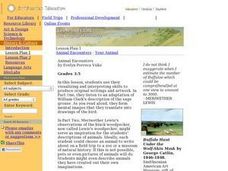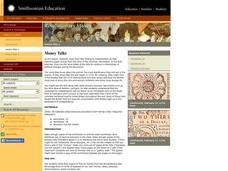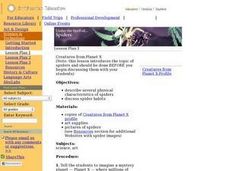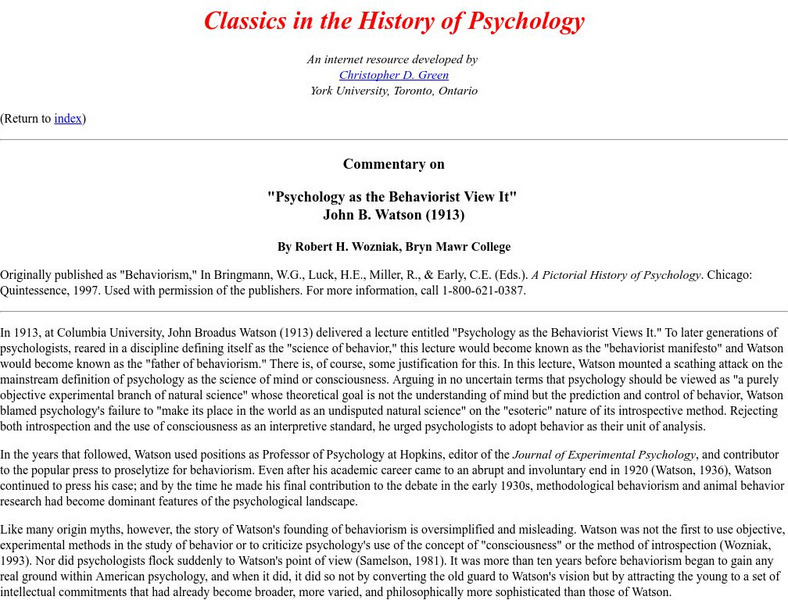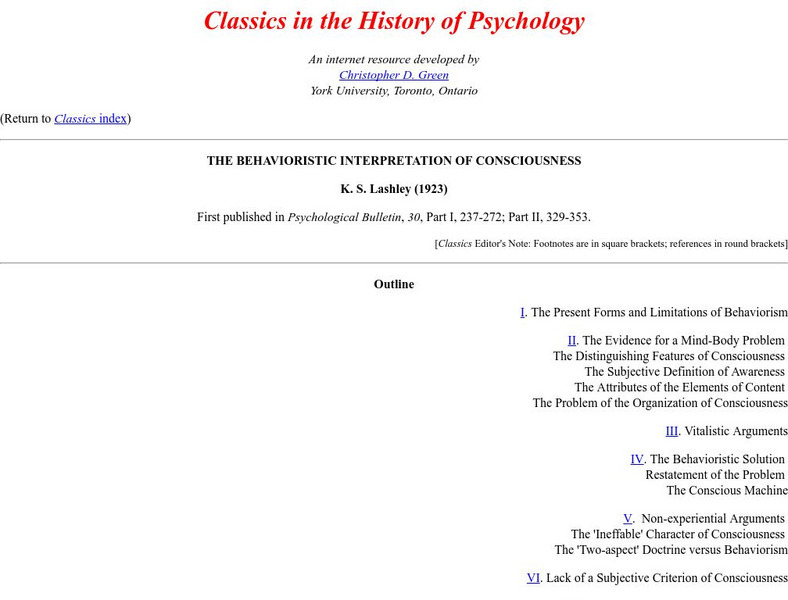Curated OER
Lewis and Clark: The Language of Discovery
Students replicate some of the trailblazing methods of Lewis and Clark on a fifteen-minute "writing journey" through the school or neighborhood.
Curated OER
Animal Encounters
Students use their visualizing and interpreting skills to produce original writings and artwork.
Curated OER
How Things Fly
Students observe photographs of selected twentieth-century aircraft at the National Air and Space Museum and note differences in the design of aircraft wings, fuselages, and engines.
Curated OER
How Things Fly
Students, by drawing on their own experiences, discuss and examine the basic physics of flight. They participate in a variety of activities regarding flight.
Curated OER
Stories of the Wrights' Flight
Students examine and compare primary and secondary source accounts of the Wright brothers' first flights on December 17, 1903.
Curated OER
Money Talks
Students move from fact finding to interpretation as they examine paper money from the time of the American Revolution. In the final exercise, they use the issue dates of the bills to construct a chronology of political changes during...
Curated OER
The Rocky Shore
Students compare a realistic landscape painting with a photograph of the same place.
Curated OER
Spy on a Spider
Students view slides or live specimens to name and describe the distinguishing features of groups of arthropods, especially spiders and insects. They complete worksheets, observe webs and then search for and record where spiders can be...
Curated OER
Creatures from Planet X: Spiders
Students are given a description of some fascinating animals from "Planet X". They follow the descriptions given to illustrate one of these animals paying careful attention to introduced vocabulary such as 'appendages', 'receptors', and...
Curated OER
Facts, Feats and Folklore: Spiders
Students review and discuss a variety of sayings, folklore and superstitions about spiders. They discuss this information and choose either an interesting fact or appealing foklore tradition to illustrate.
Curated OER
Letters from the Japanese American Internment
Students make deductions about life in an internment camp by reading and comparing letters written to Clara Breed. Along the way, they consider the advantages of looking at a historical event from the multiple points of view of...
Curated OER
Breaking News English: Brazil Votes on Gun Ban
In this English worksheet, students read "Brazil Votes on Gun Ban," and then respond to 47 fill in the blank, 7 short answer, 20 matching, and 8 true or false questions about the selection.
Curated OER
Colors of Gray
Students view a film about theatres in Chicago. They discover how performing arts can be enjoyed by all ages and how one becomes involved in performing in theatre. They answer questions and discuss to end the lesson.
Curated OER
Total War
Students view a video about the result of using atomic weapons during World War II. They examine how human rights are violated during wartime. They listen as family members come and speak to the class about their experiences during the...
Curated OER
You Decide
Fourth graders, who live on a Native American reservation, investigate how land management is addressed at Tribal Council meetings. They participate in a simulation of a meeting as the discover the workings of tribal government. They...
Curated OER
The Appaloosa - Horse of the Nez Perce
Fourth graders investigate the use of Appaloosa horses by the Nez Perce Native Americans during the War of 1877. They examine the geography of the area and determine why the Appaloosa horse was suited to this use after looking at...
Curated OER
Force and Motion
In this force and motion worksheet, middle schoolers read six paragraphs with numbered sentences about force and the laws of motion and answer one question.
York University
Classics in History of Psychology: Cognitive Consequences of Forced Compliance
This page is a part of the Classics in the History of Psychology site. First published in 1959 this paper looks at what happens to a person's private opinion when he/she is forced to do or say something contrary to that opinion.
York University
Classics History of Psychology: Commentary Psychology as Behaviorist Views It
Modern comments on the classic paper delivered by John B. Watson in 1913. The paper, "Psychology as the Behaviorist Views It" is considered by the psychological profession as the "behaviorist manifesto" and lays much of the foundation...
York University
Classics in the History of Psychology: Behaviorism the Modern Note in Psychology
"Behaviorism--The modern Note in Psychology" written by John B. Watson in 1925 was an important paper in the development of Behaviorism in Psychology. It is reproduced in full here.
York University
Classics in the History of Psychology: Cognitive Maps in Rats and Men
A Classic Psychological work by Edward Tolman from 1948. His experiments with rats led to discussion of cognitive maps in man.
York University
Classics History of Psychology: Behavioristic Interpretation of Consciousness
Classic Psychology paper on the "Behavioristic Interpretation of Consciousness" by K.S. Lashley originally published in 1923.
York University
Classics History of Psychology: The Origin and Development of Psychoanalysis
Classic series of lectures presented by Sigmund Freud and first published in the "American Journal of Psychology" in 1910 entitled "The Origin and Development of Psychoanalysis" with introduction and commentary by Dr. Raymond E. Fancher.
York University
Classics in the History of Psychology: Gestalt Psychology Today
This site is provided for by York University. Where classic Freudian Psychoanalysis fails with the non-verbal patient, Gestalt Psychology tries to combine a little drama, movement, and action to broaden the scope and population that...

